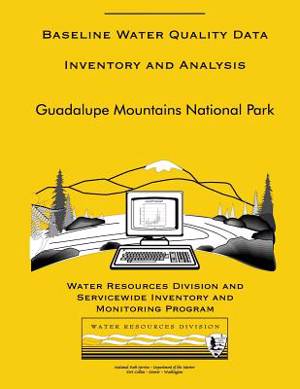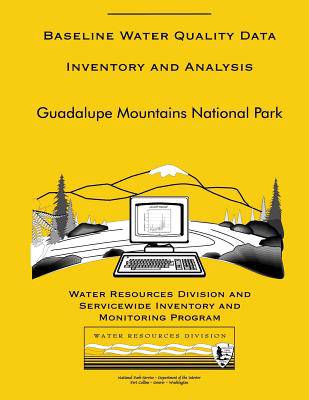
- Afhalen na 1 uur in een winkel met voorraad
- Gratis thuislevering in België vanaf € 30
- Ruim aanbod met 7 miljoen producten
- Afhalen na 1 uur in een winkel met voorraad
- Gratis thuislevering in België vanaf € 30
- Ruim aanbod met 7 miljoen producten
Zoeken
Baseline Water Quality Data Inventory and Analysis
Guadalupe Mountains National Park
National Park Service
Paperback | Engels
€ 36,45
+ 72 punten
Uitvoering
Omschrijving
The National Park Service's (NPS) Organic Act of 1916 states that the mission of the NPS is to promote and regulate the use of national parks, monuments, and other units "... to conserve the scenery and the natural and historic objects and wildlife therein and to provide for the enjoyment of the same in such a manner and by such means as will leave them unimpaired for the enjoyment of future generations." One task embodied by this mission is preserving and protecting water resources and water dependent environments in parks. Ensuring the integrity of park water quality, due to its importance in sustaining natural, aquatic park ecosystems and supporting human consumptive and recreational use, is fundamental to successfully addressing this task. The first step in ensuring the integrity of park water quality is defining historic and extant water quality.
Specificaties
Betrokkenen
- Auteur(s):
- Uitgeverij:
Inhoud
- Aantal bladzijden:
- 408
- Taal:
- Engels
Eigenschappen
- Productcode (EAN):
- 9781492366959
- Verschijningsdatum:
- 13/09/2013
- Uitvoering:
- Paperback
- Formaat:
- Trade paperback (VS)
- Afmetingen:
- 216 mm x 280 mm
- Gewicht:
- 938 g

Alleen bij Standaard Boekhandel
+ 72 punten op je klantenkaart van Standaard Boekhandel
Beoordelingen
We publiceren alleen reviews die voldoen aan de voorwaarden voor reviews. Bekijk onze voorwaarden voor reviews.











